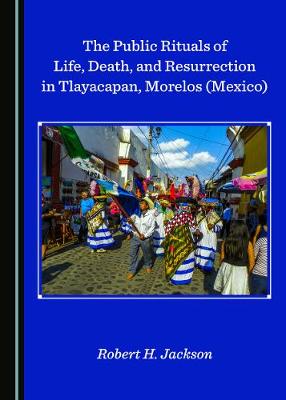A process of social, cultural, and religious change occurred in central Mexico starting in the sixteenth century, following the Spanish conquest. Missionaries from different religious orders attempted to convert the indigenous peoples of central Mexico to Catholicism, and a part of this process involved the imposition of a new ritual cycle on the existing Mesoamerican cycle that governed agriculture and the cosmic order. This study describes the evolution and modern practice of the public ritual of life, death, and resurrection in Tlayacapan, Morelos. Tlayacapan is a community located in northern Morelos that has evolved from being a traditional community of Nahuas to a center of cultural tourism based on its architectural patrimony, artisan tradition, and, particularly, its public ritual. Carnival and the Day of the Dead continue to form a part of the traditional ritual cycle, but have also been used to attract tourism. This study discusses the modern practice of carnival, Holy Week and the Day of the Dead, and the historical origins of these public rituals.
- ISBN13 9781527545083
- Publish Date 29 January 2020
- Publish Status Active
- Publish Country GB
- Imprint Cambridge Scholars Publishing
- Edition Unabridged edition
- Format Hardcover
- Pages 252
- Language English
